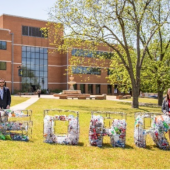
Abstract: Southern Arkansas University has developed the SOAR Sustainability Conference to spotlight current sustainability-related efforts. SOAR, representing the southern Arkansas region, was added to the conference name to signify the area of emphasis for the event. This spring conference event has been held in April of 2022 and 2023. The 2023 conference included over 50 presenters from academia, private businesses, government agencies, and volunteer organizations. Session topics were aligned with the critical components of sustainability education including anticipatory thinking, empathy, change of perspective, justice, responsibility, and ethics. Surveys were distributed to SOAR conference attendees to gauge their level of attitudes, knowledge, and behavior regarding sustainability issues. Responses were very positive overall, showing gains in attendees’ attitudes, knowledge, and behavior between 2022 and 2023. The behavior category showed the largest annual increase while knowledge gains over the same period were lower. Overall, the SOAR Sustainability Conference has shown success in engaging students and community stakeholders to take part in this effort to address sustainability-related challenges in the area.
Continue Reading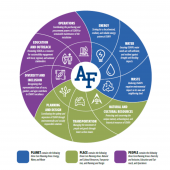
ABSTRACT: In this paper we offer an approach to sustainability-related education that can help students integrate the lessons they are learning in the classrooms to the type of real-world applications they will encounter in the workplace. We believe that by using our campus as a living-learning laboratory and engaging students in hands-on projects within a campus lab that directly contribute to one of their institution’s leading sustainability initiatives, we can unlock the highest levels of educational achievement and student satisfaction. We describe our course as intentionally designed because we have developed it with a specific purpose that goes beyond the stated learning objectives. Our course not only addresses recognized institutional and course-level educational outcomes, but also uses a community engagement approach that also directly supports important aspects of an enterprise-wide Sustainability Strategic Plan. We present relevant literature, highlight the significance of our approach to sustainability education, and describe its impact at our institution and in the community. We then offer detailed descriptions of our course’s activities, discuss lessons-learned and suggest future potential avenues of research and application. We hope this case study may prove to be an exemplar or a catalyst for other institutions of higher education as well as inspire further research aimed at improving sustainability education.
Continue Reading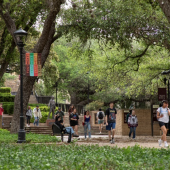
Abstract: The concept of sustainability has been gaining increasing attention worldwide, especially over the last 30 years. To foster sustainable development, education plays a crucial role. Higher education institutions have assumed the leading role in sustainability education and advocating sustainability. However, the literature that evaluates sustainability initiatives at higher education institutions is still fragmented and sparse, with existing studies often focusing on certain aspects of the sustainability initiatives. We designed a questionnaire that covers a broad spectrum of sustainability measures in the operation, curriculum, research, and outreach, which allowed us to investigate the perceived importance of those sustainability initiatives from the perspective of university community members including undergraduate students, graduate students, faculty, and staff at Texas State University in San Marcos. Our results indicated that the Texas State University campus community believes that the themes of Waste Management, Buildings & Infrastructure, and Water Use & Management were the most important themes. The campus community believed that Transportation and Academics are the least important themes. We also identified a set of action items under each theme the most and least important.
Continue Reading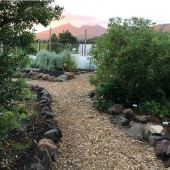
Abstract: Finding love and reciprocity in the garden during challenging times by growing community-based learning experiences.
Continue ReadingAbstract: Formal and nonformal educators help develop the environmental literacy (EL) of K-12 students, but do so in very different contexts. This paper describes educators’ views of their roles in developing student environmental literacy and barriers to that work. Educators with more advanced EL mentioned practices such as perspective taking and information evaluation. Many educators highlighted developing a connection – between students and the environment or between curriculum and students’ lives – as key to their work. The barriers identified reflect previous research, with nonformal educators also identifying access to student and peoples’ access to their sites as a major barrier.
Continue Reading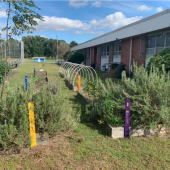
Abstract: This case study provides insights into a collaborative effort involving D.C. Virgo Preparatory Academy, a public university-run lab school in downtown Wilmington, North Carolina. The article overviews the combined efforts of DCVPA staff, university faculty, and community partners to engage the students in unique, hands-on learning experiences, particularly in the STEM areas. Students have taken the initiative to serve as change agents and leaders in the work. Several efforts at the school, including a composting program, a recycling effort, a seedling project, and a mycology lab, provide a window into dynamic experiential learning that has brought the university and school together.
Continue Reading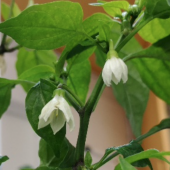
Abstract: To successfully implement the UN’s Sustainable Development Goals (SDGs), we must encourage all citizens to work together to enable a good life not only for us now but future generations too. In this article, we present an experiment carried out in autumn 2020 on a smart aeroponic garden. The goal of the experiment was to learn more about aeroponic cultivation and IoT technology and to acquire the know-how that would enable the participants to influence the environmental burden of food production. Our experiment showed that technology could also be used to introduce sustainable development themes to reach those target groups whose attention could not be attracted through other methods.
Continue Reading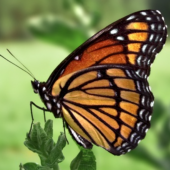
Abstract: This word journey explores flaws in our approach to cultivating environmental ethics and caring for biodiversity, especially among youths, through the lens of Carson McCullers’ classic story about the tragic but common failure of so many to achieve love between human beings.
Continue Reading
Abstract: Industrial forms of food production and consumption are tied to environmental and socio-economic crises like climate change and social injustice. Changes in consumer behavior provide a lever to initiate transformations toward a more sustainable food system. One vehicle that is widely recognized as having the ability to encourage behavior change at large is education. Sustainability education has become increasingly popular over the past two decades, often being studied in innovative teaching-learning formats which employ transformative pedagogies that aim to foster critical consciousness through deep listening, dialogue, action, and reflection of students. However, classical teaching formats that employ more transmissive pedagogies, focused on delivery and mastery of content, have been comparatively little researched in the field of sustainability with regard to how they impact student behavior. Thus, this research aims to study if transmissive sustainability education can encourage university students to consume food more sustainably. To accomplish this, a case study with 12 undergraduate students in a food sustainability course was conducted. Mixed-methods data collection and analysis techniques, such as questionnaires and interviews, were utilized in order to track participants’ self-reported food consumption behaviors before, during, and after the course. Results suggest agreement among participants about the importance of course contents, but show no significant changes in their food consumption behaviors. The findings of this empirical study support the conclusion that imparting sustainability knowledge alone is insufficient to trigger behavior change.
Continue ReadingAbstract: I was slow in coming to see the desperate need of sustainability education, in part because of a missed opportunity in my field of outdoor adventure education (OAE). Although a burgeoning set of scholars agree that OAE is strategically placed to educate for sustainability, little change within our discipline has occurred. To encourage the transition, this paper has four central aims. First, I contextualize the implications at stake by summarizing recent scientific predictions around climate change. Second, I differentiate sustainable OAE into the sustainability of OAE (e.g., its practices, footprint size, etc.) and OAE for sustainability (e.g., curricula that promotes education about sustainability), noting that despite long-standing petitions to address both, progress has been made in neither. Third, I celebrate, with others, the inherent potential that OAE has to promote sustainability through its educating in natural environs, within living/learning communities, which utilize physical/sensory, affective and intellectual ways of knowing that inspire critical impulses. Fourth, I outline the central changes that need to occur in order to create sustainable OAE. The foremost change needed is for OAE programs to curricularly commit to promoting a sustainability worldview, including values, knowledge, dispositions, and agency related to environmental, social, and economic justice. However, change of this depth will require a revision of OAE course offerings that allow for multiple and prolonged participant engagement over time. Such engagement, then, necessitates that OAE shift its emphasis from remote and sublime landscapes, to programs that not only connect participants to the places in which they reside, but cultivate a care and affection for them. This appreciation can be created through a combination of adventurous learning and microadventures. In sum, “local landscapes, far more often, as a way of life” encapsulate the changes OAE might make in contribution to the global need of sustainability.
Continue Reading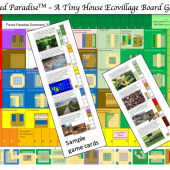
The use of board games in education is under-utilized. As we come out of this pandemic, and adjust to new directions, education can reinvent itself, and create better learning environments. Games can engage students with different learning styles and inspire individual creativity. Board games represent the missing tool in our toolboxes, and they can replace the traditional lectures with a method that reaches all students. This literature review introduces the background needed to incorporate games into curriculum and to encourage educators to embrace that possibility of engagement. Games have the potential to lead us into action in our communities and find solutions for global climate change issues.
Continue Reading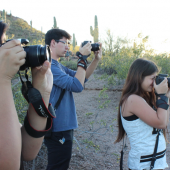
Abstract: Recognizing that most modern students have access to smartphones equipped with multi-media capture capability, this article explores how sustainability education must include digital media literacy in 21st Century learning. Through the lens of a sustainability and media teacher, the article analyzes literature from the fields of digital media literacy, 21st century skills, and sustainability education. The author ties together theoretical and practical methods of how embracing digital media when teaching sustainability can enhance student learning and sharing of sustainability knowledge. With references to emerging trends, critiques, and challenges to media technology adoption in sustainability education settings, the author outlines several techniques to empower teachers and students to incorporate technology they already use daily, and share their work with greater audiences to engage communities beyond the classroom.
Continue Reading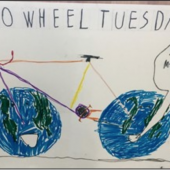
Sustainability education has changed identities a number of times over the last decades. How might whole-school sustainability (WSS) prepare students to address current global issues? A focus on teaching the Sustainable Development Goals (SDGs) creates opportunities for students to develop systems thinking and to learn to take civic action. We visited four schools in the United States to observe and document replicable models of K-12 WSS. In our research, we used a mixed methods approach to code data from interviews, classroom observations, and school campus tours. Results from a case study analysis of four K-12 schools map out pathways toward implementing and refining WSS education programs to include the SDGs, systems thinking, and civic action.
Continue Reading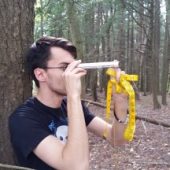
Abstract: Predicted changes in climate have generated interest in strategies to mitigate emissions of greenhouse gases and increase education on the topic. Our study involved an instructor-led team of 19 biology undergraduate students that aimed to quantify tree carbon sequestered on 67 hectares of a university campus forest near Utica, New York, and estimate its monetary value as a carbon offset. We identified individual hardwood and conifer trees and measured diameter at breast height (DBH) of 343 trees within fifteen 0.04-hectare sample plots during a 3-week period. We estimated total campus forest carbon to be 7,678 Mg and annual sequestration to be 82 Mg C/year. We also found additional educational value of this voluntary field research project beyond traditional ecology field exercises. Campus managers could choose to count sequestered carbon as an offset to annual CO2 emissions from campus operations. Although our campus is not eligible to sell the accumulated carbon, we calculated a one-time offset to be worth $143,397 on the voluntary carbon trading market. Future studies could benefit from the efficient sampling methodology we used to quantify carbon contained in large forest areas and increased student learning from project-based field exercises.
Continue Reading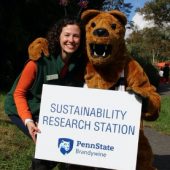
Abstract: In Fall 2017, Penn State Brandywine kicked off an initiative titled Sustainovation, emphasizing programming and community collaborations through sustainability and innovation. The campus identified Tyler Arboretum as a community partner to work with to assist in advancing their education and outreach goals. Students from across the campus came together at the beginning of the semester for an initial meeting to be introduced to the United Nations Sustainable Development Goals (SDGs), to meet the community partner and to hear about the semester project of adding sustainability education to the arboretum’s fall festival Pumpkin Days. In addition, a validated survey from Biasutti & Frate (2017) was given to the students to define their attitudes towards sustainable development before working with this partner and the project. The survey addresses four sustainability constructs of Environment, Economy, Society, and Education. At the end of the semester, the same survey was given to student participants in this Sustainovation project for Tyler Arboretum. Aggregate data show that there is a statistically significant difference in student attitudes at a minimum 90% confidence level (t-test) for eight of the twenty survey statements in the constructs of Environment, Economy, and Society.
Continue Reading
Abstract: Aldo Leopold’s classic essay, “Thinking Like a Mountain,” has been a touchstone of environmental ethics and sustainability education for over seventy years and continues to challenge and inspire wildlife ecology undergraduate students, and many more. But has it lost some power in the face of mounting evidence of accelerating damage and growing threats to the natural world, threatening biodiversity and human society on a global scale? Students and others now need another Leopold story, one that encapsulates an environmental ethic with a call for urgent action, a metaphor that urges not just change, but rapid transformation.
Continue ReadingAbstract: In recent years, media scholars and educators have made an effort to address ecological issues in their work. Ecomedia literacy adapts the principles and practices of the media literacy movement in order to prepare the public to critically engage with the relationship between media and the environment. However, this article argues that the philosophical frameworks, on which existing approaches to media literacy education are founded, are limited. The field’s reliance on traditions of constructivism and cultural studies allows learners to engage with ideas, but not things. The article argues that an ecomedia literacy that draws from speculative realism—in particular, in recognizing the reality of non-human things, emphasizing materiality, and challenging the nature/culture divide—will more effectively prepare the public to critically engage and practically respond to pressing ecological issues such as climate change.
Continue Reading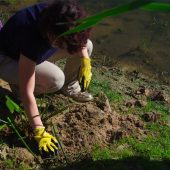
Anthropogenically-induced water quality issues are plaguing the people and environments of Southwest Florida. In 2018, nutrient-rich runoff into waterways caused one of the largest and longest occurring algal blooms in the area; however, many were unaware or misinformed about the causes or impacts of these blooms. Young people are at the forefront of this changing environment and will continue to face water reliance issues in the years to come (Leal, et al., 2015). However, gaps within the existing science curriculum do not address the anthropogenic actions that are leading to these crises (National Research Council, 2012). Southwest Florida is being drastically altered by the large number of people who move to the area each year; urban sprawl, habitat loss, and human-induced climate change are impacting the region (McVoy, et al. 2011). Local water quality issues necessitate a more focused, specific effort to build awareness and knowledge to ensure clean and safe water is locally available. Therefore, the need for Environmental Education (EE) is becoming increasingly important for students to be able to make informed decisions about personal actions contributing to these issues. The project, Future Leaders of Water Quality (FLOW) focused on educating teachers and students by engaging them in environmental literacy, specifically focused on water quality education in local middle schools. Project FLOW worked with local teachers to develop an innovative, five-day, lesson plan focused on the causes and implications of anthropogenically-induced eutrophic conditions. Data were collected throughout the implementation to measure the impact of the curriculum intervention that addressed water quality issues of the region. The results of the study suggest exposure to the lessons increased student understanding of water quality issues and motivated students to take personal action to improve water resiliency within their local communities.
Continue Reading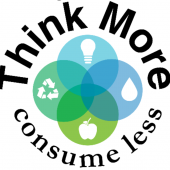
Abstract
On campuses across the world, faculty, staff, and administrators continue to wrestle with how best to foster a stronger sense of belonging and community among first-year college students. Research in the field of education for sustainability (EfS) suggests that utilizing a cohort-based approach to sustainability education can lead to a number of positive outcomes for participating students and the broader campus culture. Meanwhile, student affairs research demonstrates the value of living/learning communities (LLCs) in supporting undergraduate students as they transition to college. This paper showcases the experience of Hobart and William Smith Colleges in implementing a sustainability-themed LLC on its campus, highlighting how one institution is utilizing sustainability education to build community among first-year college students.
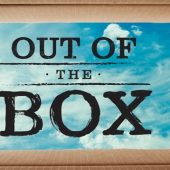
Although higher education institutions are being encouraged to reorient their curricula to address sustainability, not everyone accepts the tenets of the United Nations’ mainstream approach to education for sustainable development (ESD), especially David Selby. This paper recounts intellectual gold nuggets garnered from critically reading his scholarship about education for sustainable contraction to counter climate change and global heating (instead of global warming). His ideas are deemed both enticing and disconcerting but apropos for these ‘interesting times.’ They provide a way for people to walk a different path than mainstream ESD one that respects transience, contraction, moderation and sustainability. This can best be achieved by deep education leading to deep, quantum learning so people can engage with the fears and truths staring them in the face. The thoughts shared in this paper should resonate with educators, politicians, industry leaders, civil society and the media.
Continue ReadingSustainable development and creative thinking have become central aspects of Higher Education in today’s multidisciplinary world. With the balance between learning and teaching priorities in mind, the Design Academy, Sichuan Fine Arts Institute and School of Design, Jiangnan University incorporated the author’s newly evolved teaching methodology — 3Ac: ‘Acknowledgment, Action and Accountability’ model of sustainable development and creativity — into its taught programs at all levels. The 3Ac model is a formative learning method for building the capabilities of individuals to create changes toward sustainable development. This paper first defines the 3Ac design methodology (Acknowledgment, Action, and Accountability) in the context of sustainable development and education: Acknowledgment is the appreciation and recognition of the importance of sustainable development in the face of global challenges, with a particular focus on team effort, co-design and sharing findings and practices. Action is the establishment of design strategy and action plans that consider not only the importance of intentions, goals, affordable and reachable resources but also a clear road map for achieving maximum efficiency when tackling the most challenging tasks. Accountability deals with a growing understanding of the benefits of working together to tackle global challenges such as Corporate Social Responsibility (CSR) practices. The framework aims to develop students’ capabilities through case studies of undergraduate, graduate and continuing professional development of young designers. Based on evidence from the feedback and evaluation of action research, the research team plans to further refine the 3Ac design teaching methodology and create a model that can be implemented and scaled effectively with collaborative partners from the community, business and local government.
Continue ReadingAbstract: The research coordination network (RCN) – Climate, Energy, Environment and Engagement in Semiarid Regions (CE3SAR) is a NSF funded five-year project (2012 to 2016, extend to 2017). One goal of the RCN CE3SAR project is to enhance sustainability education in South Texas. To achieve this goal, the RCN CE3SAR steering committee adopted two strategies: creating learning objects and supporting open education. This article reports the process and methods of creating and publishing RCN CE3SAR sustainability learning objects as open education resources.
Continue Reading
Abstract: This theoretical and conceptual article explores the connection between systems design in education, specifically curriculum design, and critical pedagogy, the educational adaptation of critical theory. The author presents the well-established concept of how the industrial standardization of education stems from the imposing of linear structures onto curricular design, inherently suppressing students and communities to have greater control on their educational experience. While there have been great gains in sustainability education, it is self-defeating to the systems thinking nature of sustainability to have sustainability instruction follow traditional linear formats. The author discusses some essential concepts to systems thinking and systems design, and then explores many of the preeminent authors of critical pedagogy and their respective viewpoints. In the discussion, the author interweaves how a systems approach to curriculum design can help meet calls made by critical pedagogy theorists, possibly alleviating some of the oppressive curricular norms assumed by industrialized linear education.
Continue ReadingAbstract: Decolonization is a multifaceted and complex process, involving a wide range of concepts, including the restoration of Indigenous lands to Indigenous control, improved recognition of tribal sovereignty, strengthening of Indigenous worldviews and knowledge traditions, cultivating cultural responsiveness in education and health care, aligning research methods with Indigenous cultural priorities and values, and more.
This special issue of the Journal of Sustainability Education on the topic of Decolonization and Sustainability Education reflects many of these diverse projects. The issue is inclusive of Indigenous and allied voices, of academic and Indigenous discourses, of large-scale political actions and—what Jeff Corntassel calls—“everyday acts of resurgence.” The selections are arranged in ways that center Indigenous voices and the work on the ground that reinforces Indigenous sustainabilities and Indigenous-centered pedagogies.
Continue Reading
In order to develop bioenergy into a viable industry capable of providing valuable energy and employment, there is an immediate need for a workforce prepared for the impending challenges of this emerging, interdisciplinary industry. To meet this need, it is necessary to identify and prioritize the topics that should be included in a college-level bioenergy curriculum. We implemented a three-round Delphi study to determine components of a college bioenergy curriculum in the US, by establishing consensus among a panel of American bioenergy experts. Round One consisted of a single open-ended question: Keeping in mind the future of a commercial bioenergy industry, what content knowledge should a student have upon completion of a college-level bioenergy curriculum? Responses were qualitatively coded into themes, and experts were asked to rate the importance of each theme using a five-point Likert-type scale during subsequent rounds. The final round resulted in 13 themes: Energy Basics, Types of Bioenergy, Environmental Impacts (including Life Cycle Analysis), Current Technologies, Societal Issues, Logistics, Policy, Biomass Composition, Non-Bioenergy-Specific Fundamentals, Biomass Production, Conversions, Bioenergy Market, and Business-Related Knowledge. Results will be used to bolster the existing bioenergy education initiative at Oregon State University, and can provide guidance to other institutions in the US and abroad interested in developing similar bioenergy education programs.
Continue ReadingArt-science intersections are a powerful means to inspire creative thinking in our future scientists, engineers, and citizens, which will allow them to imagine and build a sustainable world. Coupled to active learning and collaboration in science education, art can be a means to evoke deep meaning in abstract concepts such as Planetary Boundaries (PB). Relating PB to an individual’s choices and actions makes these concepts more tangible. As our nation strives to produce more science and engineering majors, we see an emphasis to recruit students to these fields early in their education, but this education does not always inspire creativity or encourage students to use their skills to create a sustainable future. This is particularly true in underrepresented, less privileged populations, where students see a career in science or technology as a means to live a more comfortable life—which can be very resource intensive on our planet. Through our undergraduate research program at Pasadena City College, we translate our research in sustainable materials into lessons to teach underrepresented middle school and high school students about sustainability. Hands-on classroom experiments focused on sustainability and renewable energy drive in-depth discussions relating PB to each student’s actions within their community. Outreach to underrepresented populations has stimulated interest in sustainability and careers in which STEM degrees can be applied to ‘green’ urban areas and make individuals aware of how their choices can impact the environment. Sustainability education is therefore an opportunity to promote diversity in the STEM workforce. Importantly, these outreach efforts have also greatly impacted the community college students who design and carry them out.
Continue ReadingAbstract: India has compulsory teaching and learning of Environmental Education at all levels of formal education. This was mandated through a Supreme Court directive. This study was conducted using a survey instrument that was used as a proxy of sustainability literacy. The instrument had open-ended questions to gauge the respondent’s perspectives, close ended knowledge-based questions, statements to understand attitudes and their awareness of eco-labelling/certification. The target group of study was the entire batch of 90 students (15 Female and 75 Male) that had joined the postgraduate programme in 2014. The students came with about of year of work experience. The major background was engineering and science with only eight percent with commerce background. All were found to be high achievers in their previous education in school and graduation.
Content analysis of the open ended question showed that 24 percent of the students agreed that economic development at the cost of environment is a short term solution, followed by 16 percent each saying that there is a need to have a balance or economic development should be at the least environmental cost. About seven percent said that economic profit can improve the environment and there is no option left if we need economic development. Only six percent putting comfort over the environment. Although the attitude was very positive, about 62 percent of the students were not able to articulate the difference between the quality of life and standard of living. 75 percent of the respondents supported the compulsory CSR act. 71 percent were in favour of extended producer responsibility. There seems to be a limited understanding of sustainable development and equates it to environmental conservation as any lay person who is informed by mass media. 72 percent did not understand the term Green Washing. The awareness was found to be moderate. Profit maximisation was the understanding as the goal of a business. Nearly half of them were of the opinion that consumers will not pay for environmentally friendly products. Although a high of 89 percent said that eco-labelling has an influence on consumer behaviour, very few of them were aware of eco-labels. Almost all agreed that polluters should pay 67 percent of them also believe that environmental clearances are an impediment to economic growth and 64 percent believe that privatisation leads to better utilisation of resources.
The study shows a pro environment attitude but at the same time a limited understanding of the depth of issues and only the economic centric perspective of sustainable development. Only 16 percent gave some hint of social dimension to sustainable development. Awareness of HDI and GDP was high but connection to quality of life was missing. The environment was high on priority as 24 percent of the students agreed that economic development at the cost of environment is a short term solution, followed by 16 percent each saying that there is a need to have a balance or economic development should be at the least environmental cost. There seems to be a limited understanding of sustainable development and equates it to environmental conservation as any lay person who is informed by mass media.
Also it was found that students were influenced by common business perspective being projected in Indian media. Business is becoming a major driver of sustainable development with increasing production and consumption along with population as a major reason for environmental degradation. It is recommended that social and environment be part of ethical framework of business education. It would be useful if details sustainability literacy assessments are done to inform the business management curriculum for the need to include environmental /sustainability management. The impact of undergraduate discipline was found to influence awareness and perception and hence it is important that the management curriculum removes the gap in sustainability literacy amongst students.
Colleges and Universities around the U.S. have quietly invested in campus agricultural projects (CAPs) as interdisciplinary space for sustainability and food system education. In 2009, the College Sustainability Report Card showed that 29 percent of college campuses had some sort of campus farm or garden (Sustainable Endowments Institute, 2009). Agricultural education is no longer limited to traditional land grant research farms. CAPs have emerged in small and large, vocational and liberal arts institutions; but what role do these programs truly play in educating future farmers and food system professionals? Is preparing students for a career in the food system a goal of the relatively young campus agriculture movement? If so, what are the educational objectives and the pedagogical process for achieving them? Using qualitative and quantitative analysis of a regional inventory and a national survey, this article explores the themes associated with the campus agriculture movement and calls for a greater focus on the direction and purpose of campus agricultural education.
Continue ReadingThis qualitative research study examined the relationship between sense of place and engagement in community food systems. Narrative inquiry, phenomenology, and case study methodologies were used to capture the rich, lived experiences of 29 participants involved in community food systems. The participants were affiliated with one of three organizations in Wisconsin. The results emerging from semi-structured interviews uncovered the interrelated motivations, outcomes, engagement activities, and senses of place of the participants. The study proposed that food, particularly the growing and eating of local food, had the unique characteristic of connecting people to the social and ecological aspects of place in ways that developed a strong sense of place and an integrated human-nature worldview centered on food (a “foodview”). The results also supported a multi-dimensional understanding of sense of place.
The results of this project will be useful to community organizers, food systems advocates, and sustainability educators.
This paper explores research and transformative community organizing done in North Minneapolis, MN. The North Minneapolis community is working to transform their local food system through a bottom-up, community-based, community-led multi-layer organizing plan. As part of my research I supported the community in exploring what their vision was and what plan would need to be built to make that vision a possibility. Regenerative agriculture was key to this.
Continue Reading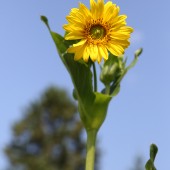
Kelly JSE March 2017 Future Casting Issue This time of year I am always itching to break ground on a new vegetable garden—one that will overflow with juicy strawberries and blueberries; bright green spinach, kale, and broccoli; plump peas, pumpkin and potatoes; all varieties of peppers, onions, tomatoes, beans and squash to please any palate; […]
Continue ReadingAbstract: Is it important to educate the media on sustainability? This paper debates the need for sustainability education to be nurtured among media practitioners in Malaysia. Media play a vital role in educating society in three main areas of sustainability including environment, economy, and social justice. In this paper, six media practitioners from two local Malaysian printed media organizations, The Star and Utusan Malaysia, were interviewed to gauge their understanding on sustainability education, perceptions on their pivotal role in sustainability education, and the challenges they face in the process of educating society about sustainability issues. The findings of this study show that most Malaysian media practitioners displayed a clear understanding about sustainability education and they also realized their responsibility for not only informing but also educating society about sustainability issues and the importance of sustainable lifestyles. The ultimate challenge the media faces in terms of sustainability education comes from the media organizations themselves, such as the existence of gatekeepers who control the news. Overall, this study demonstrates that the Malaysian media’s involvement in sustainability education is no longer a myth. We hope that this study may provide direction in sustainability education not only among the Malaysian printed media, but also for developing and Southeast Asian countries, and the rest of the world.
Continue Reading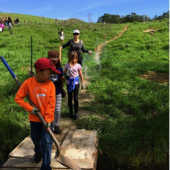
Future casting for us begins with going back — to the real basics, to understanding our place and the people who sustained themselves here for hundreds of years, engaging in real-world problem solving in pursuit of “the right kind of change at the right time.”
Continue Reading
Abstract: This study sought to determine the influence of environmentally themed higher education courses upon students’ self-perceptions of their environmental literacy. Past research has suggested mixed conclusions about the objectives, approaches, and impacts of environmental and sustainability education in higher education. This study assessed environmental literacy and the influence of pedagogical perspective and instructor emphasis in environmentally themed higher education courses. Using the Hollweg et al. (2011) framework for environmental literacy, the study assessed students’ self-perceptions of their environmental literacy in a pre- and post-test format. Data were analyzed using a paired samples t-test and one-way ANOVA with a Tukey HSD post-hoc test. The results of the study showed that environmentally themed higher education courses are having a significant influence on students’ self-perceptions of their environmental literacy. However, instructors seemed to emphasize behavior least of the four aspects of environmental literacy. These findings suggest that environmentally themed courses are having a strong impact, yet further integration of environmental education principles may be meaningful. This study clarifies the impact of environmentally themed higher education courses. The distinction between pedagogical perspectives delineates new understandings of the differences in environmental literacy change. This study serves as a ground for future research to build the implementation of environmental education in higher education.
Continue Reading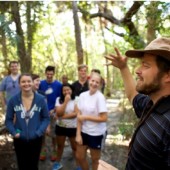
Abstract: In this article, I explore the future of higher education within the context of teaching and learning for sustainability. Challenges currently facing sustainability education are identified along with opportunities to face these challenges in ways that are transdisciplinary and holistic. I make the case that envisioning the future of sustainability education enables practitioners and educational theorists to better meet the needs of today’s generation without compromising the ability of future generations to meet their needs (World Commission on Environment and Development, 1987). My vision of the future of sustainability education in higher education is grounded in transformative, experiential, and place-based approaches. Engaging students in authentic inquiry in the classroom enables students to become better citizens and stronger problem solvers within the context of sustainability and beyond.
Continue ReadingWelcome to the February 2017 General Edition of the Journal of Sustainability Education!
Continue Reading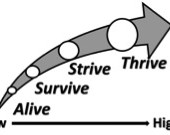
Abstract: A conceptual sustainability taxonomy has been needed to better communicate the value of sustainability, to align sustainability scholars’ theories and sustainability educators’ practices, and to develop curriculum, teaching, learning, and assessment to enhance college students’ comprehension of and commitment to sustainability across general, major, and co-curriculum. Original conceptual research, including the grounding of a conceptual sustainability taxonomy with early career student affairs educators in higher education, presents a grounded conceptual sustainability taxonomy (Alive, Survive, Strive, Thrive) for educating college students and initiating scholar-practitioner contemplation, discussion, and research.
Continue Reading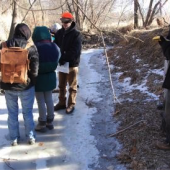
This case study describes a problem-based and service learning module in which undergraduate students participated in a community-based project. Students joined a group consisting of local non-governmental organizations (NGOs), public and private organizations, concerned citizens, and city officials to tackle issues concerning the local watershed. The case study took place over a number of years from 2014 to 2016 and will continue in subsequent academic years with a new group of multidisciplinary students.
Students put together documentation for a grant application that resulted in the city receiving $2.5 million dollars in grant money towards sustainable stormwater management systems. This aspect of the project included extensive data collection and analysis, much like the kind of work water conservationist in the field would perform. Students continued the work by using the data to plan and design appropriate, site-specific best management practices (BMPs) for the campus and in subsequent courses will implement these designs on site.
The mode of instruction described in this case study proved quite engaging to the students because it put them in the heart of an actual local project, doing work that was removed from a purely academic exercise – thereby offering a real-world scenario as field employees. The goal is to provide hands-on instruction that inspires and engages students and allows them to apply concepts of watershed management as a service to their local community.
Sustainability education examines the confluence between society, environment, and economy. Yet, an overemphasis on economy has historically trumped attention to the other sphere’s needs. Such an imbalance, editors David Selby and Fumiyo Kagawa argue, calls for a radical reconceptualization of sustainability education. In their book, Sustainability Education Frontiers: Critical Transformative Voices from the Borderlands of Sustainability Education, they invite authors from ten different countries to discuss how sustainability education can be transformed to meet the needs of a diverse and interconnected world.
Continue Reading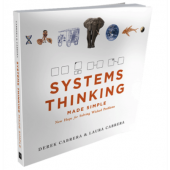
In this book review the author summarized the text, Systems thinking made simple: New hope for solving wicked problems by Derek and Laura Cabrera (2015). In the text, cognitive thought is described as a complex adaptive system and four simple rules of thinking are included as an approach to problem solving.
Continue Reading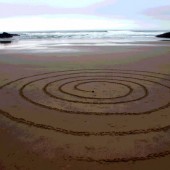
Stakeholders have become increasingly vocal about companies’ sustainability impacts, and corporations have responded by issuing sustainability reports that discuss and gauge performance metrics for a variety of social and environmental dimensions. These corporate sustainability reports are public domain and contain a wealth of longitudinal data that could be used by stakeholders, including educators and students. However, these reports appear to be vastly underutilized due to insufficient knowledge of and skills for assessing corporate sustainability information. This article presents the SPA (Sustainability Performance Assessment) System (Paun 2015), an educational tool for mentoring students in corporate sustainability performance research. The Global Reporting Initiative’s (GRI) G4 framework forms the model underlying SPA. A student learning outcomes survey reported that 96% of the respondents said the SPA System reduced sustainability report complexity through enhancing their sustainability knowledge and/or analytical skills. More specifically, student feedback indicated an increased understanding of sustainability both as a concept and from a business perspective, and the improved ability to assess and compare corporate sustainability performance based on sustainability report information and data.
Continue Reading
Abstract: Geography supports place-based inquiry for the learner, applying the old environmental adage of “think globally, act locally” to environmental problem solving. Many within and outside of the discipline of geography see it as a highly appropriate home for sustainability studies. Yet despite a history of human-environment education, place-based relevancy, and support from professional research or education organizations, studies show that geography does not always take a lead role in sustainability education. In the following, we revisit the contested histories of geography and sustainability education and show support for geography-led sustainability curriculum. The scope of this research is universities which have self-identified as leaders in campus sustainability, using the Association for the Advancement of Sustainability in Higher Education (AASHE) Sustainability Tracking, Assessment, and Rating System (STARS) participation as an indicator. To best understand the current relationship of geography and sustainability studies in higher education, this study examines the role of geography in offering “Sustainability Focused” courses as reported by AASHE STARS institutions with geography programs. The results show that although geography departments are highly utilized when present at an institution, there is still much room for improvement both within geography departments and campus-wide. We then discuss the implication of these findings, both for the discipline of geography and for students of sustainability.
Continue Reading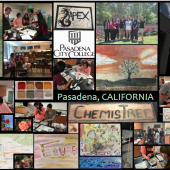
As a background for these student responses, I would first like to describe the distinguished program they are a part of at Pasadena City College (PCC). The Early Career Undergraduate Research Experience (eCURe) is a program at PCC that provides students with an undergraduate research experience in the natural or physical sciences at the onset of their scientific careers. This unique experience inspires enthusiasm for scientific research by introducing students to research projects with broader impact in terms of sustainability, energy, the environment and emerging scientific technologies. In this particular eCURe research group led by Dr. Jillian L. Blatti, students have devised methods of synthesizing sustainable paints and testing their resultant properties; they have transposed their tested methods into lesson plans to engage local high schools in scientific outreach efforts, inspiring the next generation of scientists and science educators in sustainability education. As part of this outreach effort, students collaborated with Penn State University’s Nanotechnology Applications and Career Knowledge (NACK) Network in their Remotely Accessible Instruments for Nanotechnology (RAIN) program to bring hands-on experience with advanced analytical equipment to high school students via the Internet, including a scanning electron microscope and atomic force microscope, which they used to analyze sustainable paints they crafted in the classroom. In these highly interdisciplinary and collaborative projects, PCC students are learning to integrate concepts from their science courses into a research-based setting, generating novel questions, designing experiments, analyzing the results, and communicating their science to a broad audience. This innovative community college research program has inspired our students at PCC to continue scientific research in sustainability that they have become passionate about as they transfer to four-year institutions. What follows is accounts of chemical research in sustainability in the chemistry research laboratories at Pasadena City College, the eCURe students’ ‘sense of place’, and how it impacted their views on sustainability research and education.
Continue ReadingThis paper examines the conceptualization and implementation of teaching inequality through placed-based and experiential learning while focusing on issues that impact the sustainability of communities through the effects of the social and historical constructs of race, class, and gender. The goal is to push students to rethink issues of sustainability in a more holistic way including social, economic, and political aspects to sustainability. In turn, students are empowered through a Freirian pedagogy to become “student-teachers” for the society in which they live in partnership with a local community organization to create public interactive history exhibits that create educational opportunities to both identify and document historical and current inequalities and their effects on the present moment and to encourage the community to engage with and analyze their own history in a manner to create meaningful dialogue and public discussion for the creation of a more equitable and sustainable society.
Continue Reading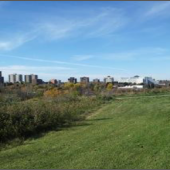
This paper provides a descriptive analysis of the experience of four doctoral students engaged in a collective project of place exploration at a midsize Canadian university. Under the methodological tradition of self-study, we contextualize concepts of place attachment and decolonization in order to investigate what it means to be interdisciplinary scholars of sustainability. We use storytelling and mobile discussion methods, alongside visual and mapping methods to disentangle our experiences and analyses of place, mobility, land, and scholarship. This reflective piece demonstrates that collaborative forms of scholarship such as this require deliberate moves toward community creation and place attachment within institutions of higher education. Through a process of collaborative investigation and writing, we have created spaces of caring academic scholarship rather than engaging in competitive and hierarchical university culture.
Continue Reading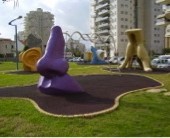
Abstract: Recent sustainability education theorists have identified a gap in the research literature regarding sensory entanglement and wonder in sustainability education. Sensory entanglement and wonder are requisite because they bring valuable shifts supporting a more critical and transformative kind of sustainability education by (1) awakening a compassionate connection with the living world, (2) nurturing alternative epistemologies, (3) providing a strengthening function for sustainability educators and their co-learners, for stamina and ongoing engagement, and (4) generating sustainability agency and an active and authentic hope to sustain a sense of the possible in the midst of the dire. This article focuses on how awakening the senses to foster a sense of wonder can nurture grounded, authentic, active hope and agency in sustainability education. It is authored collaboratively by sixteen graduate course participants and faculty co-researchers who discuss interrelated theories pointing to a need to foster senses of wonder in sustainability education. The researchers work in research teams to explore experiential and sense-based hope- and agency-building curricula. Findings include activities and reflections across the five senses as well as with the sixth sense, intuition. Sensing, listening, intimate observing, imagining, feeling, entangling, and wondering can shift unsustainability epistemologies and transform human and cultural engagement. The sense of sound can be immersive and resonant, lending learners to relational and multispecies sensing. Scent can catalyze wonder and inspire experiential, holistic growth and integration of time. Savoring in the sense of taste can extend learners from survival to joy, offering opportunities for mindfulness that can connect cultural and biocultural mutualisms and collaborative sustainability agencies. Pattern sensing for similarity using the visual sense of wonder can support connected knowing and ecological vision. The sense of touch can offer a continuous and mutual comfort and belonging. Visual pattern and texture scavenger hunts can cultivate these sustainability sense capacities. The sixth sense, intuition, opens learners to imaginative, transformative, and connective ways of knowing as place and planet, stimulating hope-giving, integrative sustainability agencies.
Continue Reading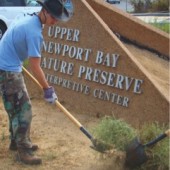
Abstract: If we are to educate the coming generation about the threats to the environment and the consequences of the excesses of human actions on our planet, educators need to consider critical pedagogy as a means of engaging students in thought and action. This article examines texts from prominent sustainability advocates and researchers, analyzing how they frame sustainability on a spectrum of hope that will then enable educators to address sustainability education with a realistic sense of agency while preparing students to meet the challenges for a sustainable future. Suggestions for pedagogical applications are included for each category across the spectra of hope.
Continue Reading
Medrick JSE Nov 2015 Hope Issue PDF Abstract: This article examines the purpose, design, process, and operations of Prescott College’s PhD Program in Sustainability Education. It describes how students come into the program, participate in foundational course work, operate within a cohort framework, and provide feedback and support for each person’s […]
Continue Reading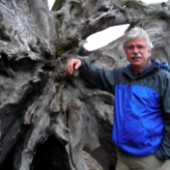
Abstract: Development of a sustainable relationship with our natural resources is an imperative for any meaningful quality of life as climate change poses the ultimate test of our adaptability as a species. The consequences of failing to respond will be catastrophic and irrevocable over a millennial time scale. During the environmental century, higher education has an ethical imperative to provide the foundation of a sustainable civilization. Higher education is broadly failing to meet this mandate. Most existing programs in environmental and sustainability science and studies provide inadequate training and lack budgetary autonomy equivalent to established academic units. Although many universities define sustainability through operational activities, the primary purpose of higher education is not operational sustainability — it is teaching, learning, scholarship, and outreach. Developing the capacity for proactive adaptation will require us to examine how we conduct teaching and research across the spectrum of higher education institutions. Education and research for proactive adaptation to rapid ecological change affecting human and natural systems is necessary if we are to produce holistic managers to conserve our natural heritage. All undergraduates should acquire basic ecological and sustainability literacy. Teaching, learning, and scholarship for sustainability must become the highest priority in higher education. Collectively, faculty have the power to implement these reforms.
Continue Reading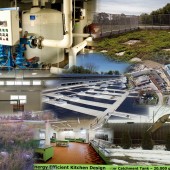
Many K-12 school districts are embracing energy conservation efforts and constructing environmentally sustainable buildings with the purpose of lower operating costs of their facilities. Investments in green infrastructure to improve operating efficiencies and occupant health are important but the impact on green buildings on instructional practice should also be considered. This study focused on teachers’ perceptions of the many impacts of a new sustainably designed middle school on students and teachers and explores the use of the school as a learning laboratory. Grades 6-8 teachers participated in open-ended focus group discussions near the end of the first school year in their new green building. An emergent coding framework was created to characterize conversation topics. Analysis of the coding yielded insights into seven major categories of teachers’ perceptions of the impact of the new green school on their work in the building and their students’ attitudes and academic performance. The seven major coding categories of green infrastructure, student behavior, student awareness, teacher awareness, curriculum, health, and professional development were further analyzed to formulate considerations and recommendations for others to capitalize on the instructional potential of sustainably designed school facilities as learning laboratories.
Continue Reading